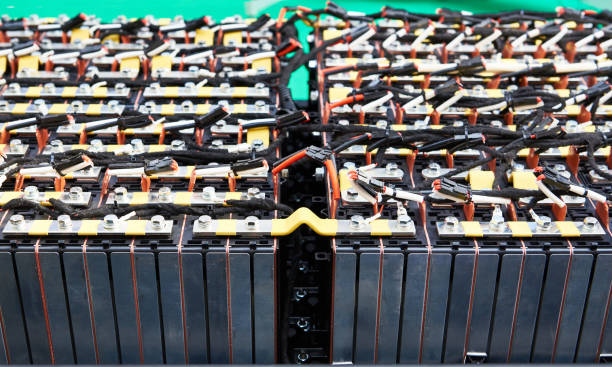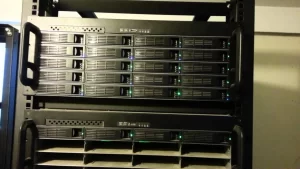The Disposal and Significance of Used Lithium Batteries
In the current era of rapid technological advancement and the escalating demand for portable electronic devices and electric vehicles, lithium batteries have become an integral part of our daily lives. However, as these batteries reach the end of their useful lifespan, the question of how to handle them properly arises. At the same time, understanding the value and significance of recycling these used lithium batteries is of paramount importance.
Used lithium battery should be managed through safe and environmentally friendly methods. One of the preferred options is recycling. Professional lithium battery recycling companies and institutions possess the necessary equipment and expertise to dismantle and extract valuable materials such as lithium, cobalt, nickel, and manganese from these batteries. Additionally, some electronics manufacturers and retailers offer battery recycling programs, providing a convenient avenue for consumers to return their used lithium batteries. Specialized e-waste recycling sites are also available in many areas, accepting various types of waste electronics, including lithium batteries.
It is crucial to avoid simply discarding used lithium batteries in regular trash bins. Such actions can pose significant environmental and safety hazards. Moreover, it is essential to be aware of and adhere to local laws and regulations governing the disposal of used lithium batteries to ensure compliance and proper handling.

The recycling of lithium batteries holds immense value and significance. From an economic perspective, it offers significant resource recovery benefits. Lithium batteries contain precious metal elements like lithium, cobalt, nickel, and manganese. Through recycling, these valuable materials can be extracted and reused in battery production or other industrial applications. This not only reduces dependence on virgin resources but also lowers procurement costs. Furthermore, the growth of the recycling industry creates a range of job opportunities, spanning collection, transportation, processing, and reprocessing, thereby stimulating economic growth.
In terms of the environment, the recycling of lithium batteries is crucial for minimizing pollution. Improper disposal of these batteries can lead to the leakage of harmful substances into the soil and water sources, causing severe environmental contamination. Recycling effectively averts such scenarios and also contributes to reducing carbon emissions. The process reduces the need for new ore mining and processing, thereby decreasing energy consumption and associated greenhouse gas emissions.
From an energy security and sustainability standpoint, recycling is vital. With the continuous increase in the demand for lithium batteries, the supply of raw materials may come under pressure. Recycling helps ensure a stable supply of critical materials and reduces reliance on imports. It promotes a circular economy, aligning with the principles of sustainable development by creating a closed loop from production, usage, to recycling and reducing resource waste while enhancing resource utilization efficiency.
On the social front, the benefits are notable as well. Recycling reduces environmental pollution from lithium batteries, safeguarding public health by lowering the risk of diseases caused by environmental contamination. Moreover, the promotion of lithium battery recycling raises public awareness regarding environmental protection and resource conservation.
Furthermore, the development of advanced recycling technologies and processes can lead to more efficient and cost-effective methods of extracting and reusing materials from used lithium battery. This could potentially lead to innovations in the battery manufacturing industry, as recycled materials could be used to create new and improved battery designs.
Another aspect to consider is the potential for collaboration between different stakeholders in the lithium battery lifecycle. This includes partnerships between battery manufacturers, recyclers, governments, and research institutions. Such collaborations can drive research and development efforts, as well as the implementation of effective policies and incentives to promote recycling at a larger scale.
In conclusion, the proper disposal and recycling of used lithium batteries are not only essential for protecting the environment and ensuring energy security but also offer substantial economic and social benefits. It is our collective responsibility to handle these batteries appropriately and promote recycling efforts to build a more sustainable and resource-efficient future.
Contact us
- Email:[email protected]
- Tel: +86 13651638099
- Address: 333 Fengcun Road, Fengxian District, Shanghai
Get A Quote Now!
Related product links are available directly
Site storage products:Site storage products 归档 – (energystoragecontainer.com)
Lithium Battery:Lithium Battery 归档 – (energystoragecontainer.com)
Read more

Unveiling Photovoltaic+Energy Storage: Four Major Application Scenarios Leading the Future of Energy
In this way, the energy landscape is evolving, and one of the most thrilling developments in renewables is the integration of photovoltaics energy storage.

From Theory to Practice: Four Methods for Estimating Photovoltaic Power Generation
Photovoltaic power generation has become an essential part of modern energy solutions, particularly in home solar systems and distributed power applications

Rack-Mounted Lithium Iron Batteries: Creating Efficient and Reliable Energy Storage Solutions
When it comes to modern energy solutions, rack-mounted lithium iron batteries are taking center stage in a variety of industries. Whether you’re powering data centers, stabilizing energy for households, or keeping critical systems online at 5G base stations, these batteries have become the unsung heroes of our electrified world.

Late Night Energy Saving Tips: How to Maximize Electricity Savings During Off-Peak Hours
With rising energy costs, homeowners are increasingly exploring innovative ways to save on their electricity bills. One effective approach is utilizing off-peak hours—times when electricity rates are significantly lower due to reduced demand.
